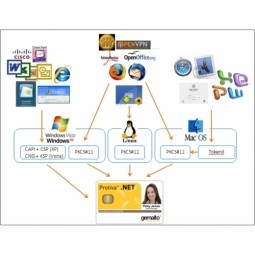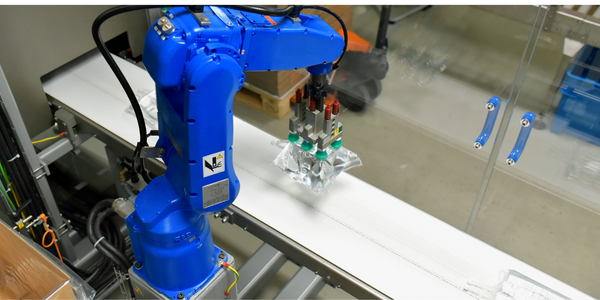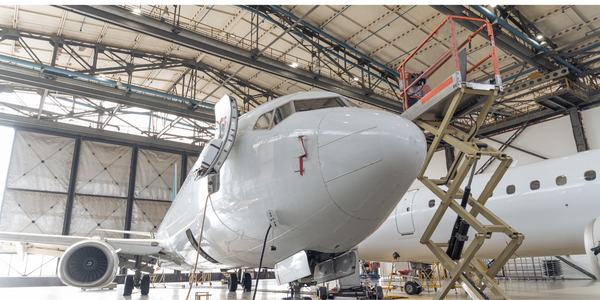下载PDF
Saving 70% of Operational Costs with Intelligent Process Automation at FRDC
技术
- 应用基础设施与中间件 - 事件驱动型应用
适用行业
- 生命科学
适用功能
- 产品研发
用例
- 库存管理
- 时间敏感网络
服务
- 系统集成
挑战
澳大利亚渔业研究与发展公司 (FRDC) 是澳大利亚政府和渔业界共同资助的合作伙伴,其资金申请流程面临着重大挑战。该过程由本地软件开发人员构建的定制工具进行管理,该工具不仅速度慢,而且即使是微小的更改也非常昂贵。 FRDC 在澳大利亚海洋的可持续发展方面发挥着至关重要的作用,它需要一种更高效、更具成本效益的方式来管理和跟踪收到的大量研究经费申请。现有系统僵化且昂贵,利益相关者正在寻找一种创新且动态的解决方案,使用户无需过多编码即可快速进行更改。
关于客户
渔业研究与发展公司 (FRDC) 是澳大利亚政府和渔业界共同资助的合作伙伴。它对拥有丰富野生动物的澳大利亚海洋的可持续发展发挥着重要作用。 FRDC 主要管理研究资助,以实现澳大利亚自然资源的数据驱动决策和战略管理。 FRDC 资金的很大一部分用于有利于渔业三个部门的研究:商业(野生捕捞和水产养殖)、休闲和本土渔业。 FRDC 需要一种更高效、更具成本效益的方式来管理和跟踪收到的大量研究经费申请。
解决方案
在考虑了多个本地和国际选项后,FRDC 选择 Nintex K2 Five 作为他们的解决方案。 Nintex K2 Five 因其内置表单技术、低代码功能以及与 SQL、SharePoint 和 Microsoft CRM 等现有系统集成开箱即用的能力而被选中。 FRDC 使用 Nintex K2 Five 构建外部用户管理器和在线门户,使候选人能够更好地管理自己的应用程序,从而减少公司的责任。新系统使 FRDC 能够在六个月的期限内完成整个流程检修,这是使用不同软件的类似组织无法实现的壮举。该解决方案还为内部团队提供了按照自己的时间表进行系统修改且无需外部成本的机会。
运营影响
数量效益
相关案例.

Case Study
Corporate Identity Solution Adds Convenience to Beckman Coulter
Beckman Coulter wanted to implement a single factor solution for physical and remote logical access to corporate network. Bechman Coulter's users were carrying smart card badges for doors, but also needed a one-time password token to access to our corporate network when they were not in the office. They wanted to simplify the process.

Case Study
Embracing Business Success in Real Time
· Increase control over growing Big Data to improve business decisions · Manage data for 28,000 biotechnology stockkeeping units in the fields of microbiology, molecular biology, animal cell cultures, plant tissue cultures, and lab ware for laboratory chemicals · Accelerate report generation and analysis with real-time data

Case Study
Flow Robotics: Scaling Up Production and Accelerating Product Development with IoT
Flow Robotics, a Danish manufacturer, developed flowbot™ ONE pipetting robots to alleviate the strain on bioanalysts in life-science laboratories and hospitals across Europe. These robots were designed to automate part of the testing process, speeding up the time it takes to produce results and reducing pressure on staff. However, the company faced challenges in scaling up production and accelerating product development. High workloads and physically challenging conditions have long been an issue for laboratory professionals. Flow Robotics estimates that around half of medical lab technicians carry out the same arm movements for at least a quarter of their working day. The American Society for Clinical Pathology reported that 85% of laboratory professionals feel burnt out; 36% struggle with inadequate staffing; and 32% face a heavy workload and pressure to complete all testing on time.

Case Study
Revolutionizing Aerospace Industry with 3D Printing: A 63% Lighter Titanium Part
GE Aviation, a renowned name in the aerospace industry, recognized the potential of 3D printing technology in transforming the sector. The primary challenge was to reduce the weight of the aerospace parts, which would directly impact the fuel costs. A lighter airplane would mean lower fuel consumption, leading to cost savings and a smaller carbon footprint. However, achieving this weight reduction without compromising the strength and functionality of the parts was a significant challenge. Traditional manufacturing methods were not able to provide the desired weight reduction while maintaining the required stiffness and strength of the parts. The challenge was to find a solution that could create strong, light, and functional aerospace parts.
Case Study
Material Intelligence at Ethicon: Sustaining Medical Device Manufacturability and Improving Patient Care
Ethicon, a world-class medical devices company, faced several challenges in its operations. The rapid selection of manufacturing materials compliant in global markets was critical to assure patients, practitioners, and purchasing organizations of the biocompatibility of their medical devices. Ensuring supply chain continuity and minimizing risks of obsolescence for medical devices due to regulatory changes were also crucial in meeting Ethicon’s ongoing commitment to maintaining patient care. Furthermore, the engineers at Ethicon were developing the next generation of medical devices and needed to access historical material data to accelerate new product development. The process of centralizing and digitalizing its materials information was a significant challenge that Ethicon needed to overcome.
Case Study
IWT's Transformation: Customizing with Efficiency in IoT
IWT, a company specializing in the design, manufacture, and installation of washing systems for the life sciences and pharmaceutical industries, faced a significant challenge in managing its wide product portfolio. The company manufactures 45 different models, 60% of which are customized to some degree. This high level of customization, combined with limited production quantities, necessitated a controlled process for managing the release of engineering changes. The goal was to achieve efficiency, reduce process time, and better coordinate production throughout the organization. The need for strict compliance in heavily regulated industries further complicated the situation. IWT's existing PLM journey with Dassault Systèmes’ SOLIDWORKS for 3D CAD and Enovia for managing CAD data and Bills of Materials (BOMs) was proving inadequate. The system had limited part classification, no workflow, and no tool to ensure data consistency. The management of non-CAD documents was also a challenge, with information often difficult to find and access.





